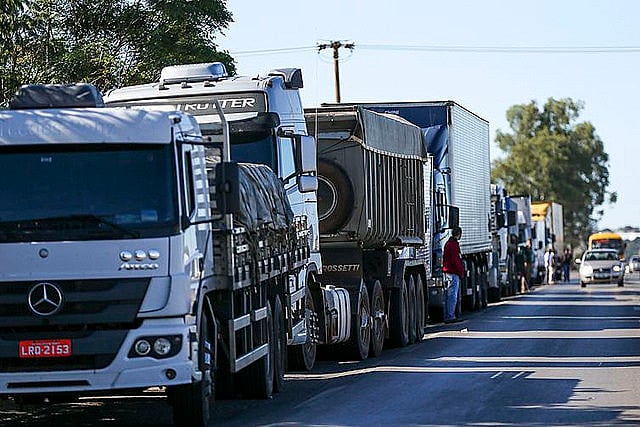Protests staged by truck drivers across Brazil have been drawing attention to the prices of petroleum-derived fuels in the country, while consumers’ routine has been impacted by the hikes. Over the last 12 months, average gas prices have been up by 18%. In 2018 alone, prices have increased by 3.37%.
Experts told Brasil de Fato that, similarly to the 17% surge in average LP gas prices reported in January through November 2017, the recent fuel price hike recorded in the country is directly linked to a pricing policy established in 2016 by the new management team that is now in charge of Brazil’s state oil company Petrobras under the coup government of Michel Temer. Under this pricing policy, Petrobras no longer regulates prices to control inflation, but rather operates at international parity price.
The chair of the Petrobras Engineers Association (Associação dos Engenheiros da Petrobras – AEPET), Felipe Coutinho, says the company’s recent decision to lower refinery prices for gas and diesel does not mean the end of the 2016 pricing policy. Actually, Petrobras executives have already stated that the policy should continue in force.
“This policy has consequences to Petrobras. When its refinery prices are high, imports by competitors become more viable and the company's refineries become idle. This policy is not beneficial to the majority of Brazilians as direct or indirect consumers, nor is it good for Petrobras, as the company is increasingly becoming a crude oil exporter while the country continues to import value-added oil products,” he argues. According to Coutinho, a quarter of Brazil’s oil refineries are curently idle.
Dismantling
Cloviomar Caranine, an analyst at the Inter-Union Department of Statistics and Socio-Economic Studies (Departamento Intersindical de Estatística e Estudos Socioeconômicos – DIEESE) and advisor for the Unified Federation of Oil Workers (Federação Única dos Petroleiros – FUP), argues that Petrobras has one simple goal with its current pricing policy: to dismantle the state oil company to sell its refineries. With its import parity pricing policy, the Brazilian government is aiming to appeal to foreign oil companies, as they would only operate in Brazil if they could sell their products at higher prices. Petrobras has recently announced that it intends to sell four of its refining facilities.
“Let’s pretend Brazil does not produce one single gallon of oil nor refines it. In this alternate world, Brazil would have to import all LP gas, gas, and diesel it needs. And the prices would be the same as we have right now. In the real world, Brazil produces three million barrels of oil. It can refine two and a half million and consumes 2.7 million. That means the country is virtually self-sufficient. Why should we have price parity if we can produce it? What could happen right now is that the country, unlike the world, could lower its oil prices,” he explains.
Caranine says that oil prices could drop continuously as the country’s high quality pre-salt oil assets would make it possible to reduce refining costs. However, to make that happen, the economist argues Petrobras would have to “start serving the interests of the Brazilian people again.”




